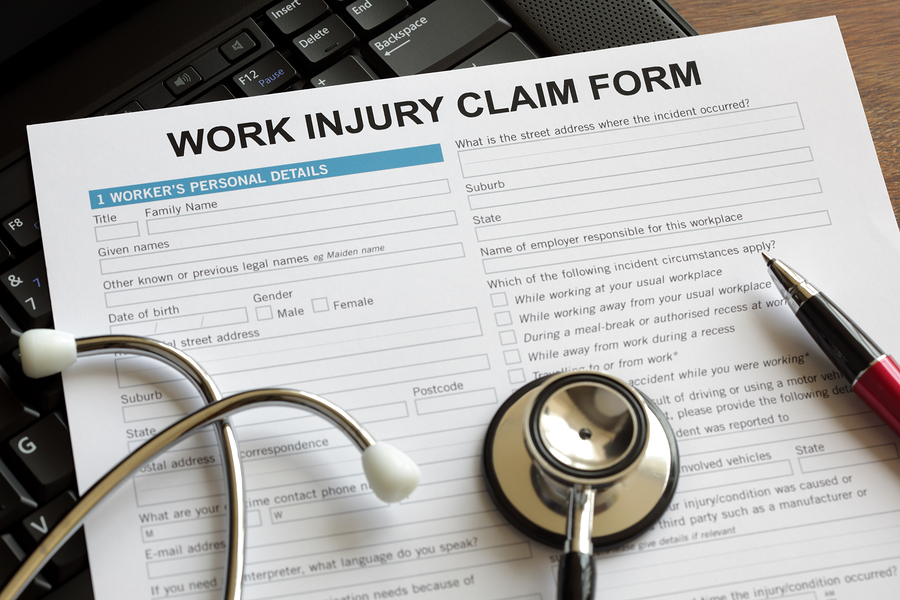Can You Get Worker’s Comp and Disability at the Same Time?
In our last blog post, we talked about receiving SSI and SSDI at the same time, which is known as concurrent benefits. But what about worker’s compensation? Is it possible to simultaneously receive worker’s comp and monthly disability benefits? How do payments affect each other? Read on to find out.
Eligibility Requirements for Disability and Worker’s Comp
If you’re thinking about applying for benefits because of a work-related injury, there’s good news: it is possible to qualify for worker’s compensation and social security benefits at the same time. However, you need to meet certain requirements in order to be considered an eligible candidate for receiving both. You also need to know about the ways your payments will affect each other if you do qualify for both at the same time.
Let’s start with the eligibility requirements. In order to be considered eligible for social security disability, you will need to:
- Have a severe and qualifying medical disorder which has either lasted for 12 months, is expected to last for 12 months, or is expected to end in death.
- Earn less than the income thresholds imposed by the SSA. These thresholds change depending on factors like whether you are single or married, whether you are blind, the year in which you made your claim, and whether you are filing for SSDI or SSI.
In order to be eligible for worker’s compensation (which is sometimes called workman’s compensation), you must have sustained an injury because of your job duties. It is alright if the injury occurred outside of your physical place of employment, as long as it occurred because of your job (e.g. traveling to meet a client). The injury must also be severe, meaning that basic first-aid is not sufficient to treat the wound or illness.
In Pennsylvania, worker’s comp is administered by the Pennsylvania Department of Labor and Industry, while New Jersey worker’s comp is handled by the New Jersey Department of Labor and Workforce Development. New Jersey and Pennsylvania residents both have some different options within the broader category of worker’s comp, and depending on the nature and severity of the accident or injury, may be able to apply for:
- Death Benefits
- Medical Benefits
- Permanent Partial Benefits
- Permanent Total Benefits
- Specific Loss Benefits
- Temporary Disability Benefits
- Wage Loss Benefits

How Do Worker’s Comp Payments Affect Disability Benefits?
As the SSA states very clearly:
Disability payments from private sources, such as private pension or insurance benefits, do not affect your Social Security disability benefits. However, workers’ compensation and other public disability benefits may reduce your Social Security benefits.
By how much, exactly? When the final calculation is made, the total amount of your benefits cannot be greater than 80% of your “average current earnings before you became disabled.” If your combined benefits do not exceed 80% of your pre-disability earnings, you will not be subject to the offset.
So how are the calculations made? There are three basic ways the SSA may make its determination:
- High-Five Formula — Considers your average monthly wages from five of your highest-paid years. These years must be consecutive.
- High-One Formula — Considers your average monthly wages from your absolute highest-paid year, dating back five years. Do not be confused by the fact that both the High-Five and High-One Formulas both use a five-year measure: only the High-Five Formula actually counts wages from all five years.
- Average Monthly Wage Formula — This formula is based on monthly rather than yearly wages, unlike the High-One and High-Five Formulas. Your average wages are used, not maximums, hence this formula’s name.
You don’t have to worry about making your own calculations or categorizations: the SSA will simply use whichever of the three formulas will yield the most favorable results for you. But still, a reduction in your benefits isn’t exactly desirable. Is there any way you can help offset the effects your worker’s comp will have on your social security payments?
Fortunately, the answer is yes: there are a few different methods you can use to try and lower your offset. For example, did you know that you can write off certain portions of your worker’s compensation, such as legal fees? Or that, if you received a lump-sum payment, you may be able to distribute it over a given period of time? (In fact, the SSA itself advises lump-sum recipients to contact an SSA office immediately.)
If you need help understanding the rights, responsibilities, and legal issues around simultaneous SSDI and worker’s compensation, call a Philadelphia disability benefits lawyer at Young, Marr, Mallis & Associates at (609) 755-3115 in New Jersey or (215) 701-6519 in Pennsylvania right away to set up a free and confidential legal consultation.































